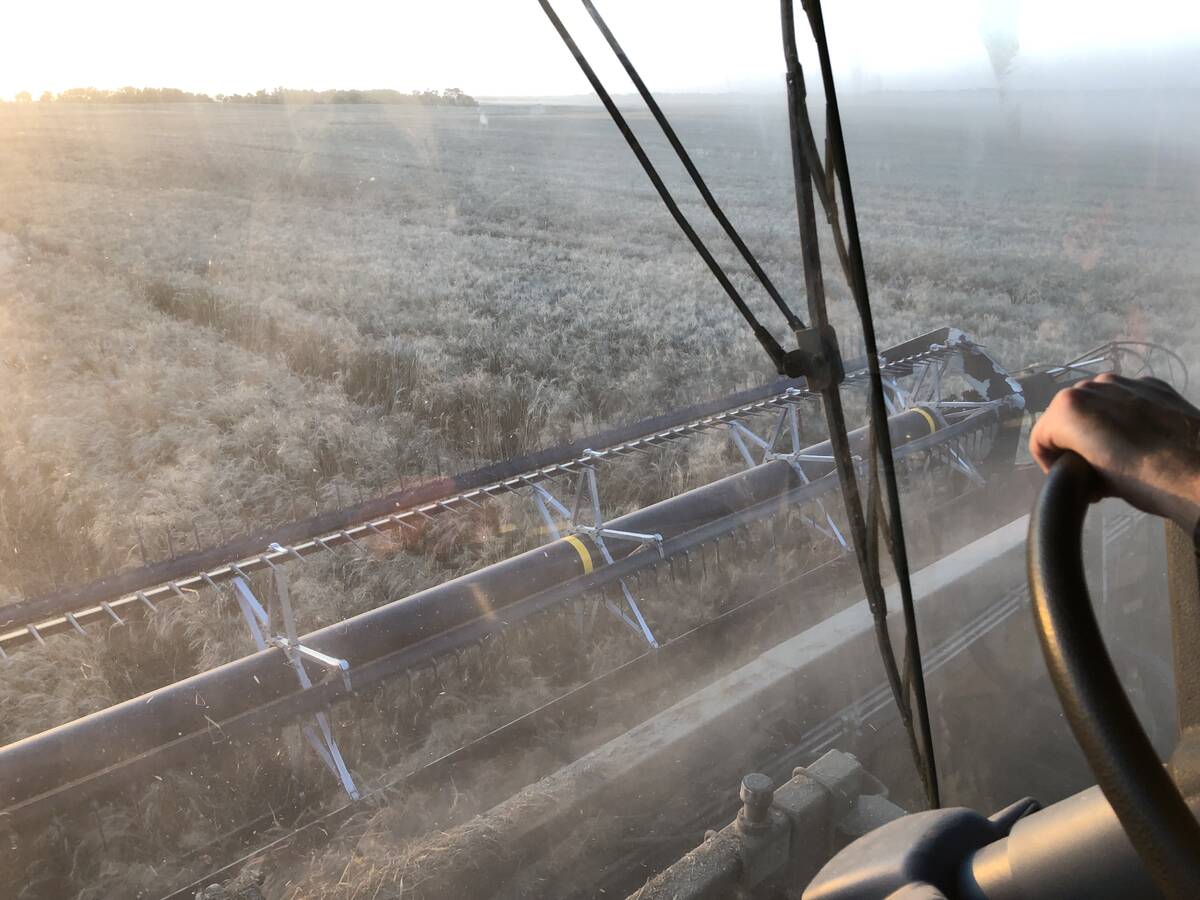BOISSEVAIN, Man. – Spud Strain spends his days surrounded by horses, but laughs when asked whether he does much horseback riding.
“I’ve got a four-wheeler that suits me just fine,” says the affable young man, who is a partner in a pregnant mare’s urine ranch just south of Boissevain in southwestern Manitoba.
Spud is a nickname that stuck when he was a child and now a lot of Boissevain residents would be hard-pressed to tell you what his real name is.
He didn’t grow up on a farm, but still managed to find success on the PMU ranch that he and his brother Darcy started in 1992.
Read Also

Mail strike disrupts grain sample delivery
The Canadian Grain Commission has asked farmers to consider delivering harvest samples directly to CGC offices, services centres or approved drop offs as Canada Post strike delays mail.
The two brothers originally set out to raise cattle on the small farm that they bought together in 1988, the year Spud graduated from high school.
Darcy had, however, put his name in for a chance to become a producer in the PMU industry, which at the time was being driven by a company named Ayerst Organics.
It was difficult to make a living off a small herd of cattle, so between 1998 and 1992, Spud worked at a variety of jobs, but none that struck him as a lifelong calling.
“I couldn’t see a lot of opportunity for advancing with (United) Grain Growers as a broom push in this day and age, without a degree.”
The brothers’ venture in the PMU industry began with 66 stalls and grew from there. They learned under the tutelage of other PMU producers and Ayerst Organics.
“Ayerst was good to help if you had questions,” said Spud. “They didn’t just send you out there blind.”
At this time of year, the PMU barn at the Strains’ ranch is empty. The horses are on pasture.
The yard is well kept. A newer bungalow is among the signs the ranch is prospering.
“We’re pretty happy with where we’re at,” Spud said.
Darcy now works for Chevron Canada at Virden, a community more than 100 kilometres northwest of Boissevain. He remains a partner in the PMU ranch, but is not involved in the day-to-day work.
Spud and his wife, Sharon, have four children between the ages of eight months and seven years. Spud appears confident that the PMU industry will still be viable when their children are grown, which could present them with an opportunity to also become involved.
The gathering of mare’s urine is only one aspect of the Strain ranch. They also strive to raise quality Percheron horses that attract buyers in Canada and the United States. Among the buyers are those looking for breeding stock as well as those wanting Percherons to show.
“From the outset, PMU was an avenue to raise and breed better horses,” Spud said.
He and Darcy started with 18 registered mares and now have more than 100 mares that are papered. They have fared well at events such as the World Percheron Congress in Calgary in 1998. They also take their registered horses to sales in the U.S., where they find buyers for at least 20 horses per year.
Spud would like to see the day when revenues from selling quality Percherons approach the kind of income his family earns from the PMU side of their ranch. It is a goal that could take several more years to achieve but one that is well rooted in his family’s history.
Although he didn’t grow up on a farm, Spud became acquainted with horses early in his childhood. He remembers his grandparents at Carberry, Man., had Percherons from the time he was “knee-high to a grasshopper.” They showed at such prestigious events as the Toronto Royal Winter Fair and the Pacific National Exhibition in Vancouver.
However, it was not until he was a teenager that Spud’s interest in horses began to take hold. He credits Darcy for fostering that enthusiasm and for leading him into an endeavour for which he seems to have no regrets.
“I don’t think I could have it much better.”
















